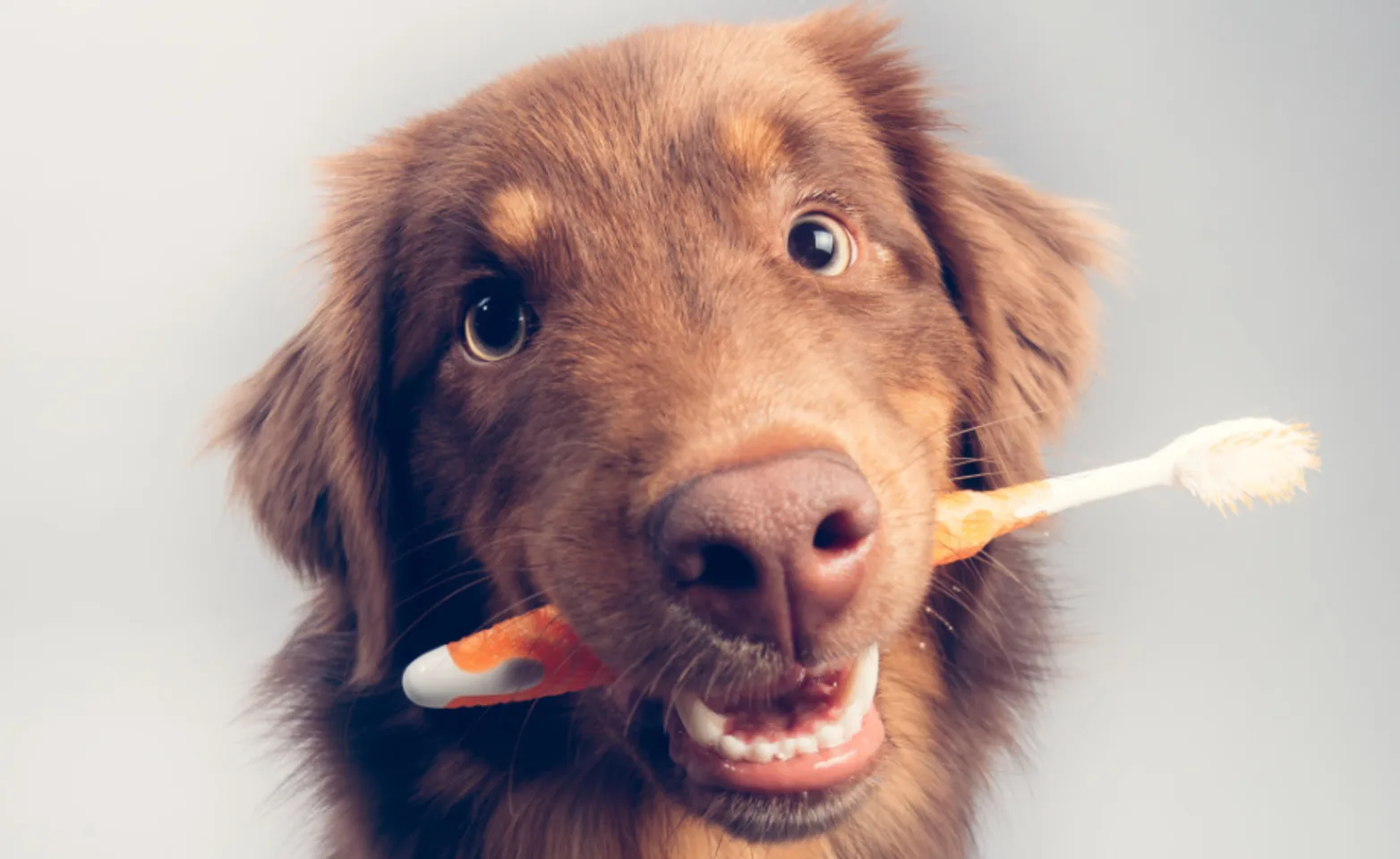Animal Medical & Surgical Center
You can help keep your pets’ teeth strong and healthy – and positively impact their overall health – with these tips for home dental care and pet tooth brushing.
Start brushing your pets’ teeth as soon as possible – 8 to 12 weeks old is best. If you brush every day your pet will become familiar with the routine when their permanent teeth erupt.
Please note: You may need to stop brushing while your pet is losing its baby teeth. Their mouth will be a bit sore and handling may cause more pain. Continue once all the permanent teeth come in.
Work with your pet’s mouth. Be patient and make it fun. Use love and praise, and try to practice at the same time each day to establish a routine. Choose a quiet time, such as late in the evening, or if your pet is highly motivated by food, try just before dinner so your pet will be rewarded for cooperation.
Handle the muzzle and touch your pet’s lips and work up to rubbing the teeth and gums with your finger. Put a few drops of water flavored with low-sodium chicken or beef bouillon for dogs and tuna juice for cats in their mouth and they’ll begin to look forward to these sessions.
Finally, use a finger brush or a soft veterinary or human toothbrush to brush the teeth. Hold the brush at a 45-degree angle to the tooth and brush gently back and forth or in a circular pattern from the gum to tip. Brushing the tongue side of the teeth is less critical, but still good. Offer rewards and treats when your pet allows you to brush to keep it a good experience.
Consider other dental aids. A large selection of veterinary toothpastes, oral rinses, and gels are available to you. Our veterinary team can help you select the one right for you and your pet. These products all enhance your home care program, but daily brushing is best.
Avoid human toothpaste because fluoride and detergents can be harmful if swallowed. Hydrogen peroxide can be harsh on the gums and shouldn’t be swallowed either.
Baking soda has high sodium content and should be avoided in older pets. We have recommended toothpaste designed specifically for pets in poultry, mint, or malt flavor.
Pick kibble and rubber chew toys that will help keep the teeth clean. Your veterinarian can recommend a complete and balanced professional diet to use at feeding time and as a treat.

Thank you for allowing us to help improve your pet’s dental health.
Following a consistent home care program will safeguard your pet’s dental health and result in fewer professional cleanings, less tooth loss, and a happier, healthier pet.
Just remember there’s no substitute for professional veterinary care.
Work with your veterinary team to ensure a long, happy life for your pet.

